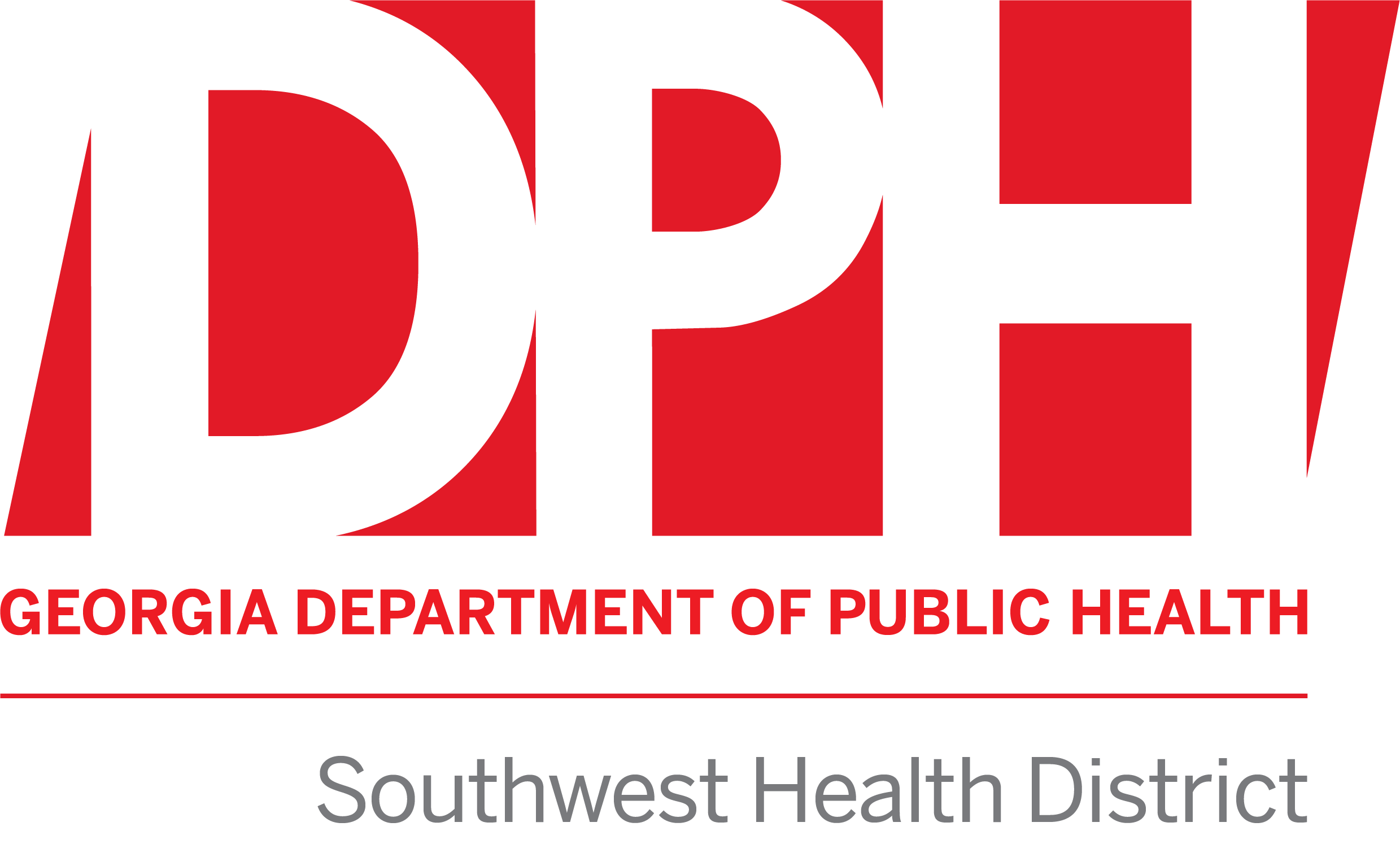Public Service Announcement
July 22, 2022
Presumptive Monkeypox Cases in the Southwest Health District
Albany, GA— The Southwest Georgia Department of Public Health is reporting two presumptive cases of monkeypox virus infection within the health district. Initial testing was completed at the Georgia Department of Public Health Laboratory and confirmatory testing is being done at the Centers for Disease Control and Prevention (CDC) Laboratory in Atlanta. At this time, the patients have been isolated and have not required hospitalization.
The Southwest Health District is conducting contact tracing to identify anyone who may be at risk of developing monkeypox due to direct, close contact with the patients while they were infectious. The use of vaccines or antivirals is being evaluated on a case-by-case basis, in consultation with the Georgia Department of Public Health Epidemiology Section and the CDC. The Southwest Health District is working with community partners to promote awareness of monkeypox, including symptoms to look for, how to test for it, and ways to prevent transmission.
Monkeypox is a rare disease caused by infection with the monkeypox virus. Monkeypox symptoms are similar to smallpox symptoms but milder, and monkeypox is rarely fatal. Monkeypox is not related to chickenpox. Symptoms of monkeypox can include:
- Fever
- Headache
- Muscle aches and backache
- Swollen lymph nodes
- Chills
- Exhaustion
- A rash that can look like pimples or blisters that appear on the face, inside the mouth, and on other parts of the body, like the hands, feet, chest, genitals, or anus.
The rash goes through different stages before healing completely. The illness typically lasts 2-4 weeks. Sometimes, people get a rash first, followed by other symptoms. Others only experience a rash.
As of July 22, 2022, over 2500 cases of monkeypox have been reported in the United States, including 211 cases in Georgia. In the current global outbreak, people with monkeypox generally report having close, sustained physical contact with other people who have monkeypox. If a person develops symptoms of monkeypox, they should isolate and call their healthcare provider or local health department, even if they do not think they’ve been exposed to monkeypox.
Everyone should take steps to protect themselves from monkeypox.
- Avoid close, skin-to-skin contact with people who have a rash that looks like monkeypox.
- Do not touch the rash or scabs of a person with monkeypox.
- Do not kiss, hug, cuddle, or have close personal contact with someone with monkeypox.
- Do not share eating utensils or cups with a person with monkeypox.
- Do not handle or touch the bedding, towels, or clothing of a person with monkeypox.
- Wash your hands often with soap and water or use an alcohol-based hand sanitizer.
For more information on monkeypox, visit https://dph.georgia.gov/epidemiology/acute-disease-epidemiology/monkeypox or https://www.cdc.gov/poxvirus/monkeypox/index.html.
